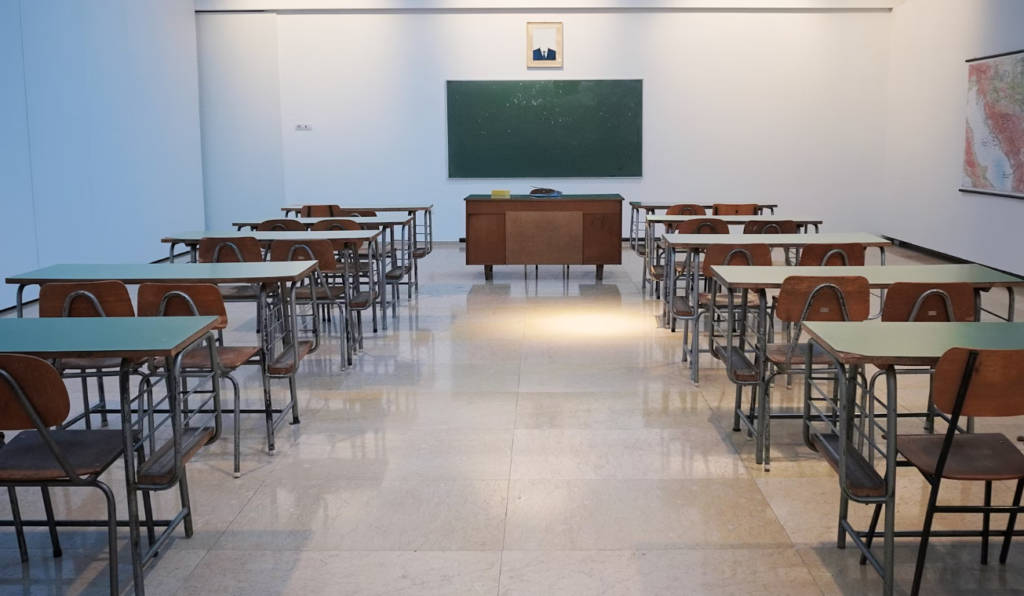Congress appropriated an extremely large amount of funding for school projects, and the final round allocations totaled $122 billion. That’s a huge amount – about $380 per person in the U.S. This revenue came through the Elementary and Secondary School Emergency Relief program and was delivered with a mandated deadline: It must be obligated by Sept. 30, 2024. That ticking clock is moving quickly, and not only is it important to meet that deadline, but there’s also another timeline worthy of note: The funding must all be spent by the end of January 2025.
With such a massive pot of funding reaching the end of its useful life, the demand for public private collaboration on K-12 campuses is high.
The National Center for Education Statistics released a study that explains why Congress allocated so much funding. The average school building in America is now a half-century old, and about one in three public schools teach students in non-permanent modular buildings. This signals a great need for construction, renovations and expansions. Private sector firms can currently find upcoming construction opportunities on school campuses in almost every state in America. And there will not be much slowdown after the federal funding is exhausted because states, cities and counties are also providing funding, and upcoming bond elections will ask voters to approve billions more in new construction.
Agawam, Massachusetts, will renovate one of its high schools at an estimated cost of $231 million. The project will remove part of an existing facility constructed in 1955 and expand the existing building significantly. The result will be a two-story high school with an academic wing housing classrooms and a community wing with a new cafeteria, auditorium, and gymnasium.
The project began a schematic design phase in December, which is expected to last between May and July. A project manager has been installed, but construction services will be procured only after the schematic design phase is completed.

Photo by Ivan Aleksic on Unsplash
Macon County officials in North Carolina have a school construction project in the design phase. Franklin High School will receive an all-new facility at a cost of about $100 million. The new building will centralize the school, which is currently dispersed in several buildings. Objectives include modernizing everything and increasing safety for students, teachers and administrators. Construction is slated for late 2024.
Officials in Hopkinton, Massachusetts, are advancing plans for a new elementary school to accommodate a growing population. Designed to welcome up to 1,195 students, the new facility will significantly upgrade the current school, which was last renovated in 2006. The project carries an estimated cost of $158.4 million. The design work is expected to be completed in late 2024, and construction procurement will begin in late 2024.
In November, voters in Ector County, Texas, passed a bond initiative to launch multiple school district projects. New construction to be funded by the bond includes a middle school in West Ector County for $120 million, a Career & Technical Education (CTE) Center for $80 million, and a transportation facility for $35 million.
The funding also provides funding for district-wide maintenance and improvements, including renovating the Permian High School Auditorium and Theater at a cost of $12.5 million and upgrading LED lighting at Odessa High School and Permian High School stadiums for a total of $1.05 million.
Recently, architects and engineers were approved to start designing and planning for the projects that will be completed on a five-year timeline, beginning with the most significant projects, namely the new middle school and the new CTE facility. The design phase for these projects will be completed in 2024, and construction is scheduled to begin in 2025.
In December 2023, the Niskayuna Central School District Board of Education approved a $47 million capital project to renovate and expand one middle school and modernize five elementary schools. The project will also address critical infrastructure issues. The state funds nearly 70% of the total project cost, and the district will pay the remainder.
This expansion and renovation plan for Van Antwerp Middle School in New York includes an expansion for an additional cafeteria and classroom space. The five elementary schools will also be modernized with upgrades to cafeterias, gymnasiums, library media centers and classrooms. The high school will receive upgrades and attention as well. Construction is slated for 2025 and will be executed in phases.
The Johnson City Commission in Tennessee has approved plans to construct a $40 million elementary school to address significant overcrowding issues and modernize some facilities. A 120,000-square-foot facility will be built on a portion of land on the existing school campus. The community-focused design plans for the new facility will accommodate 750 students in a two-story layout. Two parking areas will be created, and the gymnasium will be converted into a community center with its parking lot. The design phase is expected to last through 2023, so construction is slated for 2026.
The upcoming opportunities described are similar to hundreds more that are either about to be launched or in planning and design phases throughout the country. School construction projects tend to favor private sector construction partners that employ local subcontractors, so getting positioned early and being involved in community activities before procurement decisions are made is advisable.
Tags: Architectural Design, Community Development, construction boom, Construction Industry, construction management, construction projects, Economic Development, Educational Facilities, educational improvement, educational infrastructure, educational policy, Elementary and Secondary School Emergency Relief, Funding Opportunities, government procurement, Infrastructure Investment, Job Creation, local economies, modernizing schools, public education investment, public schools, Public-Private Partnerships, School Funding, school modernization, school renovations, State Funding, sustainable construction






 RSS Feed
RSS Feed